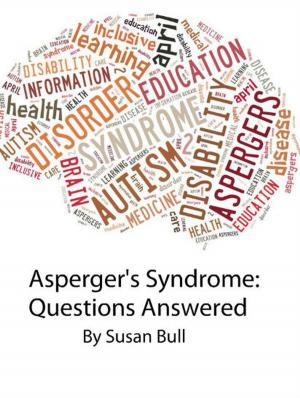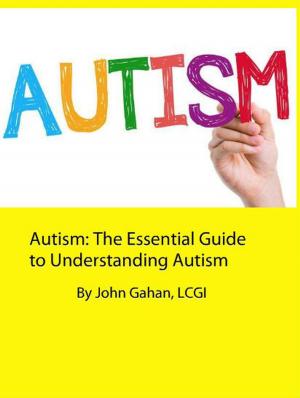Dealing With Stress Naturally
Nonfiction, Health & Well Being, Psychology, Mental Illness, Self Help, Self Improvement, Stress Management| Author: | Desmond Gahan | ISBN: | 9781386552451 |
| Publisher: | Sepharial | Publication: | June 14, 2017 |
| Imprint: | Language: | English |
| Author: | Desmond Gahan |
| ISBN: | 9781386552451 |
| Publisher: | Sepharial |
| Publication: | June 14, 2017 |
| Imprint: | |
| Language: | English |
Stress is how you feel when you are facing demands that you are not sure you can meet. It is a normal part of everyday life and can be both positive and negative. Many things can trigger a stress response - relationships, money, work, exams, the expectation you put on yourself or the expectation you feel from others – the list is endless.
Stress can affect how you feel; how you think and behave; how confident you feel; and your energy levels. A small amount of stress can be healthy as it can motivate us and help prepare us for challenges in life. However, when this balance tips into high stress levels it can cause you to feel unwell. It is very difficult to measure stress levels as different people react to events in their lives in different ways – so what you find stressful may be motivating for someone else.
Stress symptoms can include:
- Rapid heartbeat
- Tense muscles
- Headaches
- Feeling irritated/agitated
- Sleeping problems
- Breathlessness
- Sweating
- Loss of appetite
- Upset stomach
- Difficulty concentrating
- Racing thoughts
Different people will feel the effects of stress in different ways so it is important that you develop a picture of what you feel like when you are stressed. This will help you to recognise the symptoms of stress early, so that you can find ways of reducing stress. Recognising and managing stress early will help prevent it leading to more serious problems such as anxiety, depression or high blood pressure.
Stress management tips
-
Identify the problem: If you are feeling stressed, try to identify the causes. Some causes of stress will have a practical solution (such as maintaining a calendar so you don’t forget appointments or meetings). However, there are other stressful situations that we cannot prevent (such as job loss or bereavement). In these situations, it might help to look for support from someone else such a family member or a friend, a support organisation, or a G.P.
-
**Talk to someone: **Keeping the stressful thoughts in your mind can cause them to intensify, whereas if you are able to put words on these thoughts then they can begin to feel more manageable. Even if you don’t feel able to talk to someone, writing out the stressful thoughts is a way of putting them into words, which can help you to figure out what exactly is causing you to feel stressed. Find tips for starting the conversation.
-
Keep your wellbeing in mind: Being proactive and doing things that are good for your wellbeing can help manage feelings of stress. Go to the good mental health section for lots of practical tips on how to cope with everyday stress. Things that will help include: relaxing; exercising; eating well; getting enough sleep; breathing exercises; and avoiding too much alcohol or drugs.
-
**Find support: **If you have tried the above tips and they aren't helping, then consider visiting a G.P. Learn about how a G.P. can help or search for services and supports in your area.
Stress is how you feel when you are facing demands that you are not sure you can meet. It is a normal part of everyday life and can be both positive and negative. Many things can trigger a stress response - relationships, money, work, exams, the expectation you put on yourself or the expectation you feel from others – the list is endless.
Stress can affect how you feel; how you think and behave; how confident you feel; and your energy levels. A small amount of stress can be healthy as it can motivate us and help prepare us for challenges in life. However, when this balance tips into high stress levels it can cause you to feel unwell. It is very difficult to measure stress levels as different people react to events in their lives in different ways – so what you find stressful may be motivating for someone else.
Stress symptoms can include:
- Rapid heartbeat
- Tense muscles
- Headaches
- Feeling irritated/agitated
- Sleeping problems
- Breathlessness
- Sweating
- Loss of appetite
- Upset stomach
- Difficulty concentrating
- Racing thoughts
Different people will feel the effects of stress in different ways so it is important that you develop a picture of what you feel like when you are stressed. This will help you to recognise the symptoms of stress early, so that you can find ways of reducing stress. Recognising and managing stress early will help prevent it leading to more serious problems such as anxiety, depression or high blood pressure.
Stress management tips
-
Identify the problem: If you are feeling stressed, try to identify the causes. Some causes of stress will have a practical solution (such as maintaining a calendar so you don’t forget appointments or meetings). However, there are other stressful situations that we cannot prevent (such as job loss or bereavement). In these situations, it might help to look for support from someone else such a family member or a friend, a support organisation, or a G.P.
-
**Talk to someone: **Keeping the stressful thoughts in your mind can cause them to intensify, whereas if you are able to put words on these thoughts then they can begin to feel more manageable. Even if you don’t feel able to talk to someone, writing out the stressful thoughts is a way of putting them into words, which can help you to figure out what exactly is causing you to feel stressed. Find tips for starting the conversation.
-
Keep your wellbeing in mind: Being proactive and doing things that are good for your wellbeing can help manage feelings of stress. Go to the good mental health section for lots of practical tips on how to cope with everyday stress. Things that will help include: relaxing; exercising; eating well; getting enough sleep; breathing exercises; and avoiding too much alcohol or drugs.
-
**Find support: **If you have tried the above tips and they aren't helping, then consider visiting a G.P. Learn about how a G.P. can help or search for services and supports in your area.















